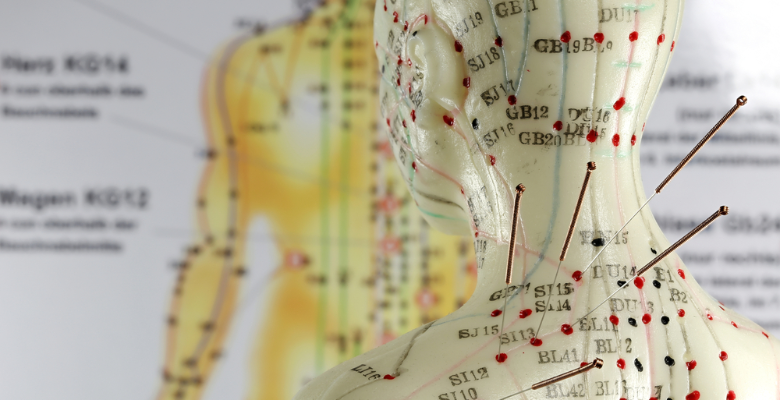When psychiatric disorders and cannabis are mentioned in the same sentence, the association is usually negative. However, as you delve deeper into the scientific knowledge about the therapeutic properties of the different chemical elements of this plant, you will see that there can be a greatly beneficial relationship for patients with several psychiatric disorders.
With Resolution 327 of the Brazilian Health Surveillance Agency (Anvisa) – which regulated the commercialization of Cannabis products in Brazil – people’s interest in treating themselves with medical cannabis has grown, and patients refractory to other therapies are becoming increasingly aware of this therapeutic possibility.
A study carried out by EXAME/IDEIA pointed out that 77% of Brazilians favor the use of medical Cannabis, if prescribed by a doctor. However, only 0.2% of physicians working in the country are prescribers of this class of drugs.
The Covid-19 pandemic has intensified the interest of physicians in the relationship between Cannabis and Psychiatry, in view of the exponential increase in psychiatric disorders that developed in the pandemic context, such as anxiety and depression, and the high refractoriness of the usual pharmacological arsenal in the management of these disorders.
In this content, we will address the potential of medical Cannabis in the management of psychiatric disorders, bringing scientific evidence in this regard and showing how to safely incorporate cannabinoid derivatives into your prescriptive practice.
Medical Cannabis and psychiatric disorders relationship
The therapeutic use of Cannabis is an ancient practice. However, there are still several stigmas and misunderstandings involving the plant. This is because in a context of recreational use of Cannabis, there is a greater association with psychiatric disorders, in particular, chemical dependence and psychotic disorders resulting from substance abuse, especially in individuals who are genetically predisposed and/or have a positive family history of psychiatric diseases.
On the other hand, when the cannabinoid derivatives are used in a medical context, with medical guidance and monitoring, and with products tested in laboratory, there are already several scientific studies which show positive results in the control of symptoms associated with anxiety, depression, Post-traumatic Stress Disorder, syndrome Tourette’s and also, schizophrenia.
Even chemical dependency from recreational use of the plant, as well as from other drugs such as alcohol and nicotine, can show good results with medical Cannabis – provided it is in an assertive context of prescription and therapeutic strategy.
This is why many physicians are seeking qualified education in the area, in order to optimize therapeutic results and modulate possible adverse effects of cannabinoid derivatives.
Learn more about the prescriptive strategies, Download our special content and get to know how to incorporate this broad therapeutic arsenal safely!
The main scientific evidence on Cannabis in the management of psychiatric disorders investigates the potential of Cannabidiol (CBD) and tetrahydrocannabinol (THC). It is already known, for example, that the CBD combines antipsychotic, anxiolytic, and antidepressant properties.
As for THC, the therapeutic characteristics are more associated with appetite stimulation, sleep induction, fight fatigue, and chronic pain relief.
It is worth remembering that symptoms such as insomnia and fatigue are common in psychiatric disorders and can also arise as side effects of psychotropic medications commonly used in these contexts.
We also emphasize the therapeutic potential of Cannabis beyond symptom control because the medical use of the plant can contribute to an important prescriptive reduction.
Medical cannabis has become an important ally in the fight against chronic use of benzodiazepinesThat’s what this study from the U.S. National Biotechnology Center, published in 2019 in the scientific journal Cannabis and Cannabinoid Research shows, for example. The research looked at a group of 146 patients who were using benzodiazepines before starting cannabis therapy.
- After using cannabinoids for two months, 30.1% of patients stopped using benzodiazepines. After four months of prescription, 44.5% of patients discontinued the use of these drugs. At the final period of the experiment, after three months of prescription, this number reached 45.2% of patients who abandoned benzodiazepines.
>>You can read the full research here: Reduction of Benzodiazepine Use in Patients Prescribed Medical Cannabis
What do we have of scientific evidence?
We have gathered the main scientific evidence for the use of medical Cannabis in the management of major psychiatric disorders.
Anxiety and Depression
Several scientific studies attest to the anxiolytic potential of CBD in animals and humans, such as this bibliographic review which relates the pharmacological actions of CBD to CB1 and CB2 endocannabinoid receptors, and also to 5-HT1A receptors. The studies that make up this review suggest not only the anxiolytic potential of CBD, but also its antidepressant and antipsychotic properties..
>> You can read the full review here: Cannabidiol: A Potential New Alternative for the Treatment of Anxiety, Depression, and Psychotic Disorders.
Another example is this study that compared the acute effects of different doses of CBD and placebo on 57 healthy volunteers performing a simulated public speaking test (SPST)-a validated method of anxiety induction.
During the experiment, subjective assessments on the Visual Analog Mood Scale (VAMS) and physiological measurements (systolic and diastolic blood pressure and heart rate) were obtained at 6 different time periods.
The results showed that compared to placebo, treatment with 300 mg CBD significantly reduced anxiety during speech. Interestingly, no significant differences in VAMS scores were observed in the group that ingested 150 mg and 600 mg of CBD compared to the group that received placebo.
This result demonstrates the U-inverted dose-response effect of Cannabidiol and once again, makes it clear that appropriate technical knowledge in the area is fundamental, so that research results can be adequately translated into clinical practice.
>> You can read the full experiment here: Cannabidiol presents an inverted U-shaped dose-response curve in a simulated public speaking test.
In relation to depression, increasingly scientific research suggests that phytocannabinoids may also be useful in treating the disease, through their action on serotoninergic receptors. An example can be this study evaluating the therapeutic effects of CBD on a variety of neuropsychiatric disorders.
The mentioned study points out that the substance is capable of reducing psychotic, anxious, and depressive behaviors, besides attenuating brain damage associated to neurodegenerative and/or ischemic conditions.
The evidence also suggests that CBD stimulates synaptic plasticity and facilitates neurogenesis, although the mechanisms of action are not yet fully understood.
>> You can read the full study here: Cannabidiol, neuroprotection and neuropsychiatric disorders.
Another example is this observational study carried out with 539 patientswhich showed that the medical use of Cannabis was associated with lower self-reported depression in the 368 patients who used the substance, as opposed to the 170 patients who did not use cannabinoids.
The results also showed that Cannabis-based products were able to improve sleep quality and levels of perceived of chronic pain in depressed patients.
>> You can read the full paper here: Antidepressant and Anxiolytic Effects of Medicinal Cannabis Use in an Observational Trial.
Schizophrenia
Conventional pharmacotherapy in the therapeutic approach to schizophrenia has advanced little in recent years. However, cannabidiol has been consolidating as a safe and promising therapeutic option in the management of refractory patients, as shown in this exploratory double-blind study.
In this analysis, patients with schizophrenia were randomized in a 1:1 ratio to receive CBD, or placebo, in association with their usual antipsychotic medication. The results showed that after 6 weeks of treatment, the CBD-treated group showed lower levels of positive psychotic symptoms compared to the placebo group.
It is worth noting that adverse effect rates were similar in both groups, indicating the favorable safety profile of CBD in the context of psychotic disorders.
>> You can read the full experiment here: Cannabidiol (CBD) as an Adjunctive Therapy in Schizophrenia: A Multicenter Randomized Controlled Trial.
This other review states that the antipsychotic effects of CBD are comparable to those of amisulpride, a drug conventionally used to treat schizophrenia.
In one of the trials covered in the review, 42 patients with schizophrenia were treated with CBD or amisulpride over a period of 4 weeks. The results indicate that both drugs resulted in clinical improvement of the positive and negative symptoms of the disease.
>> You can read the full review here: Cannabidiol as a Potential New Type of an Antipsychotic. A Critical Review of the Evidence.
In the context of psychotic disorders, the THC-based therapies suggest otherwise. Studies indicate that THC-based therapies have a higher risk of inducing and/or worsening psychotic events, especially in genetically predisposed patients.
Would you like to learn more about the main chemovars in Cannabis and their therapeutic attributes? Access this infographic and learn how to exploit the potential of each chemovar!
Addictions
The pharmacological arsenal usually used in the management of chemical dependency often has limitations in terms of results, given the high relapse rates of patients. Medical Cannabis can help improve this scenario and important studies have been published to show that the plant, when used safely and assertively, can be a “way out” of chemical dependency.
This is shown in this bibliographic review shows, which brings together preclinical and clinical studies on the medical properties of CBD in regulating the reinforcing, motivational and withdrawal-related effects of different drugs, such as alcohol, opioids (morphine, heroin), nicotine, psychostimulants (cocaine, amphetamine) and even smoking cannabis.
A special section of this review focuses on the neurobiological mechanisms that may underlie CBD’s anti-additive action through regulation of the dopaminergic, opioidergic, serotoninergic, and endocannabinoid systems, as well as hippocampal neurogenesis.
The multimodal pharmacological profile described for the CBD and the specific regulation of targets related to addictive behavior explains, at least in part, its therapeutic effects in regulating reinforcing and motivational properties in different substance abuse frameworks.
>> You can read the full review here: Role of Cannabidiol in the Therapeutic Intervention for Substance Use Disorders.
The perfil de segurança e atuação do CBD is very favorable for the use in the treatment of chemical dependence and, also, of different psychiatric disorders, such as anxiety and depression, which are often associated in the same patient.
However, specialized education in the field is fundamental to prescribe cannabinoid derivatives safely and assertively, whether in the management of psychiatric illnesses or other pathologies.
The WeCann Academy is committed to your learning journey, providing this disruptive knowledge to physicians who want to prepare for the medicine of the future.
We connect experts from around the world in a global community of Endocannabinoid System research and studies to bridge scientific knowledge and practical experience in the medical use of Cannabis through the International Certification in Endocannabinoid Medicine.
Do you want to join our community? Contact us and get ready for this new frontier of Medicine!
References
Campos AC, Fogaça MV, Sonego AB, Guimarães FS. Cannabidiol, neuroprotection and neuropsychiatric disorders. Pharmacol Res. 2016.
García-Gutiérrez MS, Navarrete F, Gasparyan A, Austrich-Olivares A, Sala F, Manzanares J. Cannabidiol: A Potential New Alternative for the Treatment of Anxiety, Depression, and Psychotic Disorders. Biomolecules. 2020.
Linares IM, Zuardi AW, Pereira LC, Queiroz RH, Mechoulam R, Guimarães FS, Crippa JA. Cannabidiol presents an inverted U-shaped dose-response curve in a simulated public speaking test. Braz J Psychiatry. 2019.
Martin EL, Strickland JC, Schlienz NJ, Munson J, Jackson H, Bonn-Miller MO, Vandrey R. Antidepressant and Anxiolytic Effects of Medicinal Cannabis Use in an Observational Trial. Front Psychiatry. 2021.
Navarrete F, García-Gutiérrez MS, Gasparyan A, Austrich-Olivares A, Manzanares J. Role of Cannabidiol in the Therapeutic Intervention for Substance Use Disorders. Front Pharmacol. 2021.




